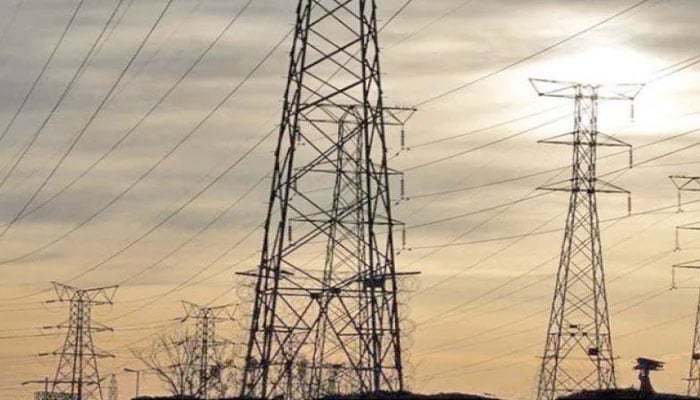PBC calls for lower power tariffs to revive economy
KARACHI: The Pakistan Business Council (PBC), an advocacy forum of leading private sector businesses, called for lower power tariffs on Thursday, saying that high electricity prices were hurting the economy and encouraging theft.
The PBC said that higher power tariffs discouraged consumption by honest consumers and created a higher incentive for theft by others, resulting in more unutilised generation capacity, higher capacity charges and further pressure on circular debt.
"Lower tariffs do the reverse. With substantial unutilised generation capacity, marginally priced power for productive sectors of the economy, such as industry, leads to higher employment and economic activity, which also generate tax revenue and exports," the PBC said on social media platform X.
The PBC also said that lower tariffs for domestic users in winter months would incentivise switch away from gas for heating and cooking, easing the gas shortage and reducing the import bill.
"None of this is rocket science. So why the inertia?" the PBC asked, urging the government to take action to reform the power sector and address the circular debt issue.
The country's power sector is plagued by inefficiencies, losses, subsidies and arrears, which have accumulated to over Rs2.3 trillion as of June 2022.
The government has been trying to reduce the circular debt by increasing power tariffs, improving recoveries, cutting line losses and installing smart meters, but the progress has been slow and uneven.
Business leaders have time to time urged the caretaker government to reduce power tariffs and improve gas supply on a priority basis, especially when the government cut petrol and diesel prices.
The PBC has already proposed to slash electricity tariff up to Rs 6.5 per unit through different measures, including renegotiating the tenor and terms of Chinese debt to Independent Power Producers (IPPs).
The PBC, in its proposal in October, explained that Pakistan suffers from the highest electricity costs in the region. The competitiveness of industry, and its capacity to create employment and generate exports, is impeded by the burden of unutilised generation capacity, inefficiencies in transmission, theft, non-recovery and cross-subsidies to residential consumers.
High electricity tariff promotes theft and increases the reluctance of domestic users to switch out of less efficient, under-priced, and fast depleting gas.
To make matters worse, there is substantial reliance on imported fuel for generation and the transmission system is inadequate to maximise the use of cheaper renewable and coal power from the south. Until a rail link is created to transport coal from Thar, reliance on imported coal will continue.
The objective of reforms should, therefore, be on reducing reliance on imported fuel, renegotiating the tenor and terms of Chinese debt to IPPs, making power more competitive by giving incentive to consumption of unutilised generation capacity, addressing inefficiencies, theft and under-recovery in distribution and making transmission more stable and reliable.
According to the proposals, the financial impact of reduction in transmission, distribution and recovery losses of Discos amounting to Rs 185 billion will reduce tariff by Rs 1.25 per unit.
-
 'A Very Special Visitor' Meets Queen Camilla At Clarence House
'A Very Special Visitor' Meets Queen Camilla At Clarence House -
 Jodie Turner Smith Shares One Strict Rule She Follows As A Mom
Jodie Turner Smith Shares One Strict Rule She Follows As A Mom -
 Hailey Bieber Reveals KEY To Balancing Motherhood With Career
Hailey Bieber Reveals KEY To Balancing Motherhood With Career -
 Photo Of Jay-Z, Other Prominent Figures With Jeffrey Epstein Proven To Be Fake
Photo Of Jay-Z, Other Prominent Figures With Jeffrey Epstein Proven To Be Fake -
 Hillary Clinton's Munich Train Video Sparks Conspiracy Theories
Hillary Clinton's Munich Train Video Sparks Conspiracy Theories -
 Fans Slam Talk Show Host For 'cringe' Behavior In Chris Hemsworth Interview
Fans Slam Talk Show Host For 'cringe' Behavior In Chris Hemsworth Interview -
 Woman Jailed Over False 'crime In Space' Claim Against NASA Astronaut
Woman Jailed Over False 'crime In Space' Claim Against NASA Astronaut -
 James Van Der Beek’s Close Pal Reveals Family's Dire Need Of Donations
James Van Der Beek’s Close Pal Reveals Family's Dire Need Of Donations -
 Prince William And Harry's Cousins Attend 'Wuthering Heights' Event
Prince William And Harry's Cousins Attend 'Wuthering Heights' Event -
 Hailey Bieber Turns Heads Just Hours After Major Business Win
Hailey Bieber Turns Heads Just Hours After Major Business Win -
 King Charles' Andrew Decision Labelled 'long Overdue'
King Charles' Andrew Decision Labelled 'long Overdue' -
 Timothee Chalamet 'forever Indebted' To Fan Over Kind Gesture
Timothee Chalamet 'forever Indebted' To Fan Over Kind Gesture -
 Columbia University Sacks Staff Over Epstein Partner's ‘backdoor’ Admission
Columbia University Sacks Staff Over Epstein Partner's ‘backdoor’ Admission -
 Ozzy Osbourne's Family Struggles Behind Closed Doors
Ozzy Osbourne's Family Struggles Behind Closed Doors -
 Dua Lipa Claims Long-distance Relationship 'never Stops Being Hard'
Dua Lipa Claims Long-distance Relationship 'never Stops Being Hard' -
 BTS Moments Of Taylor Swift's 'Opalite' Music Video Unvieled: See Photos
BTS Moments Of Taylor Swift's 'Opalite' Music Video Unvieled: See Photos




